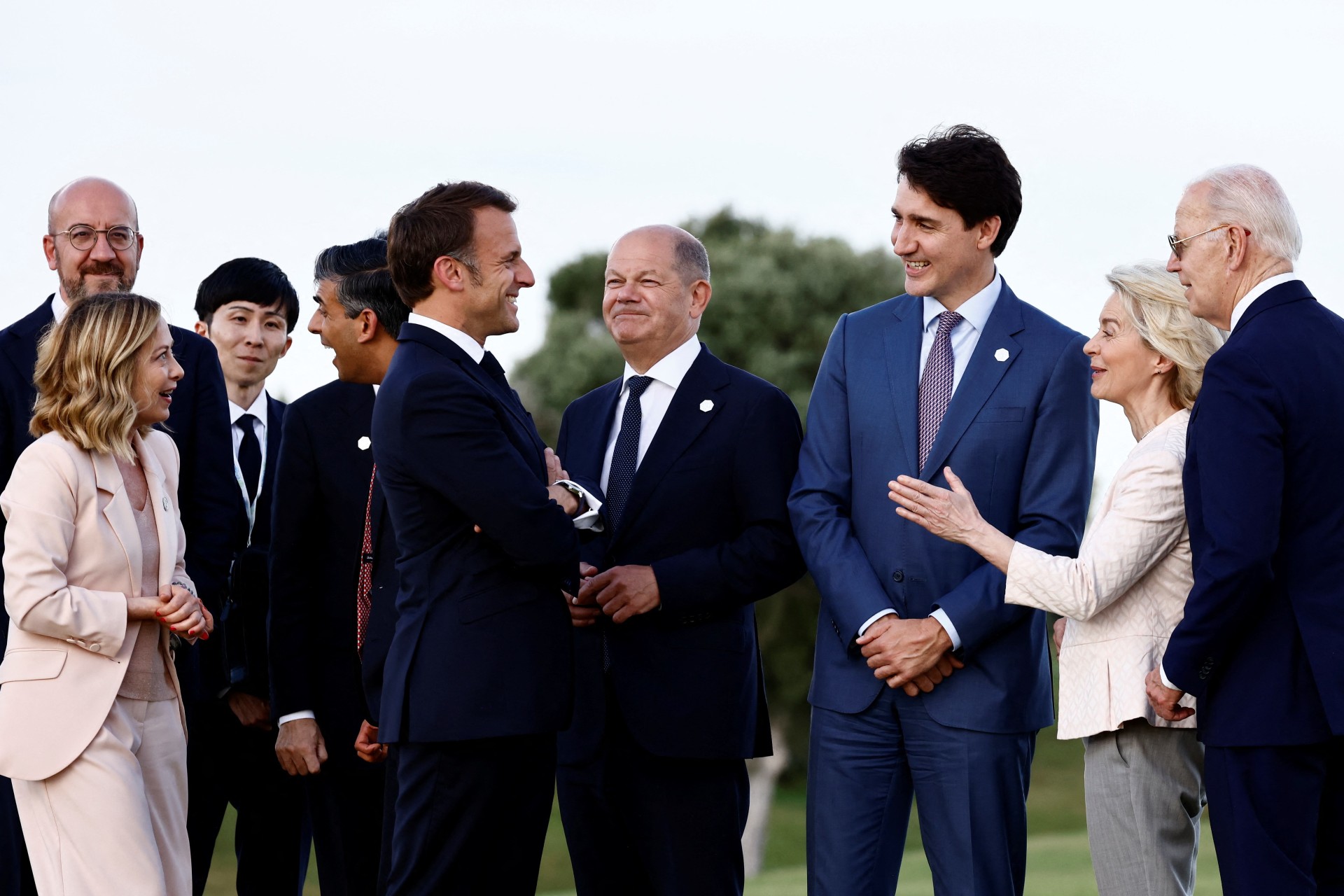The Time Is Right for Ally-Shoring, and It’s About More Than Being Friends
As the global economy realigns, the next U.S. president should formalize a liberal economic bloc of allied countries to stand up against authoritarian rivals.

By experts and staff
- Published
By
- John Austin
- Elaine Dezenski
After decades of reflexive globalism and tolerance of authoritarian economic coercion, a new vision of U.S. international leadership is emerging. On both sides of the political spectrum, there is an awareness that the United States must increase its investments in people, innovation, and infrastructure to strengthen the economy at home, while enhancing trade, sourcing, and the global coproduction system with countries that share American values and want to strengthen a rules-based global economic and political order. This is an approach we call ally-shoring.
Investments at home are vitally important to bring opportunity to those people and places feeling increasingly left behind in the global economy, as we wrote when we first introduced the idea of ally-shoring. But not every industry, supply chain, or ingredient should be simply reshored back to the United States. That is neither efficient nor productive for the U.S. economy. Rather, the United States should be leading an economic alliance of like-minded nations in a sub-global economy built around transparency, democracy, individual freedoms, and support for the rules-based order.
Ally-shoring and friendshoring (as the Joe Biden administration calls it) have become new buzzwords to describe a global supply chain rewiring that is already underway. Ally-shoring is about building new pathways for enhanced cooperation between like-minded nations in producing critical supplies and collaborating in key sectors in which democratic nations seek to maintain strategic advantages (such as artificial intelligence, quantum computing, next-generation energy, and biotechnology).
With China, Russia, Iran, and others more openly cementing their anti-Western economic and political alliance, the West needs to wake up and start working more closely together.
As well-intentioned as the Biden administration’s embrace of friendshoring has been, the next administration—whether Donald Trump’s or Kamala Harris’s—should animate ally-shoring. To do so, they will need to confront the difference between an ally and a friend. This is a necessary but highly complex task. For example, Indian Prime Minister Narendra Modi may be a friend to the United States befitting a red-carpet welcome at the White House, but he is still enabling Vladimir Putin’s war machine by gobbling up Russia’s cheap gas and oil.
Alliances, by contrast, are strategic linkages between countries, not between their leaders. Allies recognize the importance of structural mechanisms, institutions, and durable relationships that tie one state’s interests to another’s. In the military context, allies frequently agree to joint defense to push back against common threats. In the economic realm, it is no different. The United States should integrate more deeply with other committed democracies to build a more robust, highly integrated alliance of nations with a shared economy organized around the principles of free trade and transparency.
Comprehensively animating the ally-shoring idea will mean uniting with other committed democracies to construct a system for those participants who are willing to protect, maintain, and participate in the open, rules-based international trade and economic order built around shared principles of free people and free trade.
It will mean building a compelling system that wins the hearts and minds of emerging markets—making a better development offer that involves mutually beneficial investment, well-designed infrastructure, open trade, and incentives to help develop new and diverse domestic industries.
It will mean working with international democracies to ensure freedom and rights while retaining the economic and innovation high ground, maintaining leadership in emerging technologies and critical sectors.
Ally-shoring will also mean working together effectively to counter those countries that engage in economic and political coercion. This will mean building better mechanisms to crack down on Russia’s sanctions evasion, Iran’s terror financing, and China’s corruption and export dumping.
In short, the United States should focus on baking a bigger collective economic pie for the family of largely democratic nations by harnessing the advantages of international trade without the vulnerability posed by malign dictators who co-opt the multilateral tools of the global economy. For those who play by the rules, the enormous democratic consumer markets, as well as the benefits of democratic nations’ large-scale private and public direct investment, should be fully available. For those who choose not to play by the rules, the United States should implement strategic collective economic de-coupling in key sectors, alongside sanctions, tariffs, and trade barriers when necessary.
It is time to build new and enduring economic alliances—working together, producing more together, rewiring critical supply chains with trusted nations that share those goals and values. Doing so would enhance the liberal world’s combined economic strength and push back against the aggressive authoritarian powers that seek to build a corrosive global economy in their image.
To meet this moment, we need allies, not just friends.
John Austin is a Senior Fellow with the Eisenhower Institute at Gettysburg College, and a Nonresident Senior Fellow with the Brookings Institution.
Elaine Dezenski serves as senior director and head of the Center on Economic and Financial Power at the Foundation for Defense of Democracies.